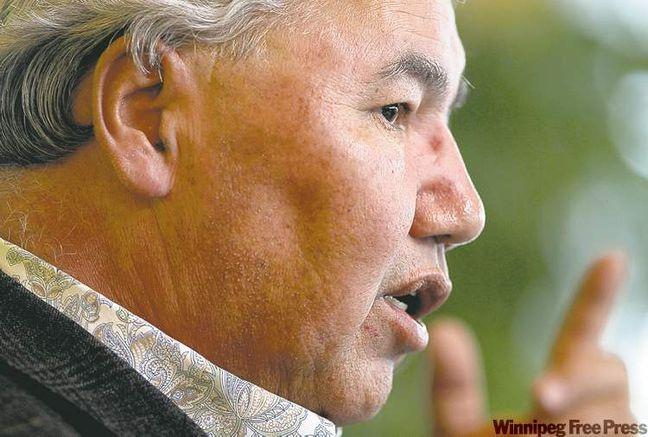By Aldo Santin
Winnipeg Free Press
November 28, 2011
http://www.winnipegfreepress.com/local/sinclair-warns-of-violent-uprising-134579783.html
 |
| For many generations, the government of Canada tried to kill the Indian in the child� � Justice Murray Sinclair of the Truth and Reconciliation Commission at Assiniboine Park Sunday |
Justice Murray Sinclair told a Sunday brunch crowd that Canadian society must heal the damage caused by the Indian residential school system or deal with the violence that will be undoubtedly unleashed against it.
Sinclair, chair of the Truth and Reconciliation Commission, said the children and grandchildren of the aboriginal students who were forced to attend residential schools are the modern-day victims: over-represented in jails and as victims of crime and suicide.
But he cautioned that one day soon, instead of the violence being directed at themselves or other aboriginal people, the violence will be directed at general society.
"There will be great violence if we do not learn how to fix this," Sinclair told about 100 people who attended the event hosted by the Canadian Centre for Policy Alternatives (Manitoba office), at the Star Conservatory restaurant at Assiniboine Park.
The Truth and Reconciliation Commission (TRC) was established as part of the settlement agreement between Ottawa and the residential school survivors, empowering the TRC to act as a forum for the victims and sharing their stories with all Canadians.
During a 45-minute talk, Sinclair outlined the history of the residential school system, and how the damage went beyond the horrific stories of physical and sexual abuse.
Sinclair said the residential school system was implemented in the late 1800s by the Canadian government as an alternative to the open warfare that was waged against Indian tribes in the United States, adding however the goal was the same -- to eradicate Indian customs and lifestyles, their entire identities, and Canadian society has been dealing with the repercussions through successive generations.
"For many generations, the government of Canada tried to kill the Indian in the child."
Sinclair said the everlasting damage from that policy is seen today in the stereotypical portrait of the troubled Indian. "This is the way that we live now because of what happened to us," Sinclair said. "Before (residential schools), we were a proud, independent, strong people; fully in control of this territory, fully in control of our future, fully in control of our understanding of our identities. But that was taken away from us."
Sinclair said the violence associated with the aboriginal community will only end when society accepts aboriginal beliefs, customs and culture as just as valid as those of the western world.
"You can contribute to that solution by understanding, supporting and engaging in those conversations, by encouraging society to do those things that need to be done and by acknowledging the validity of that state of respect... that's what reconciliation is all about."
Contact: aldo.santin@freepress.mb.ca
Any original material on these pages is copyright © BishopAccountability.org 2004. Reproduce freely with attribution.